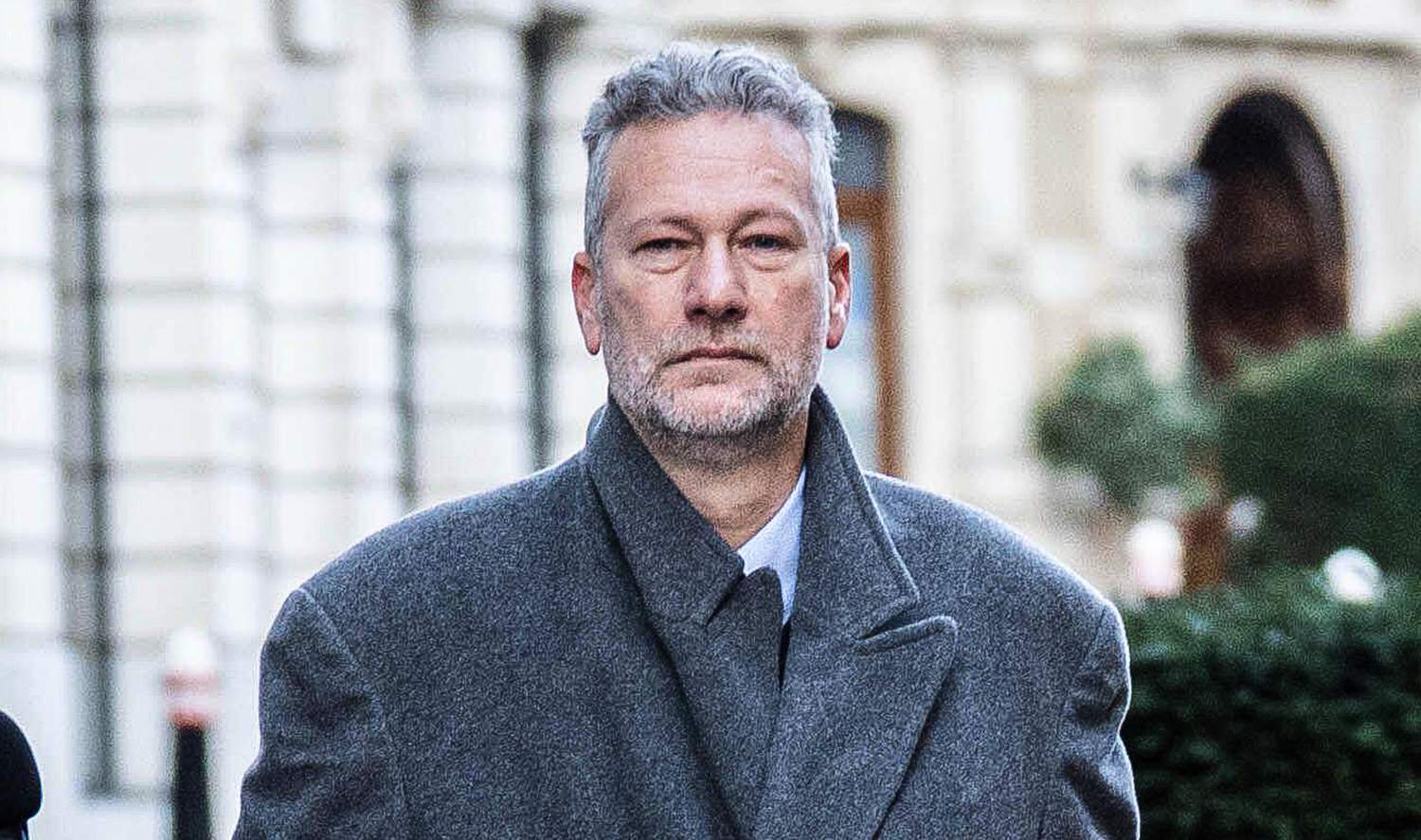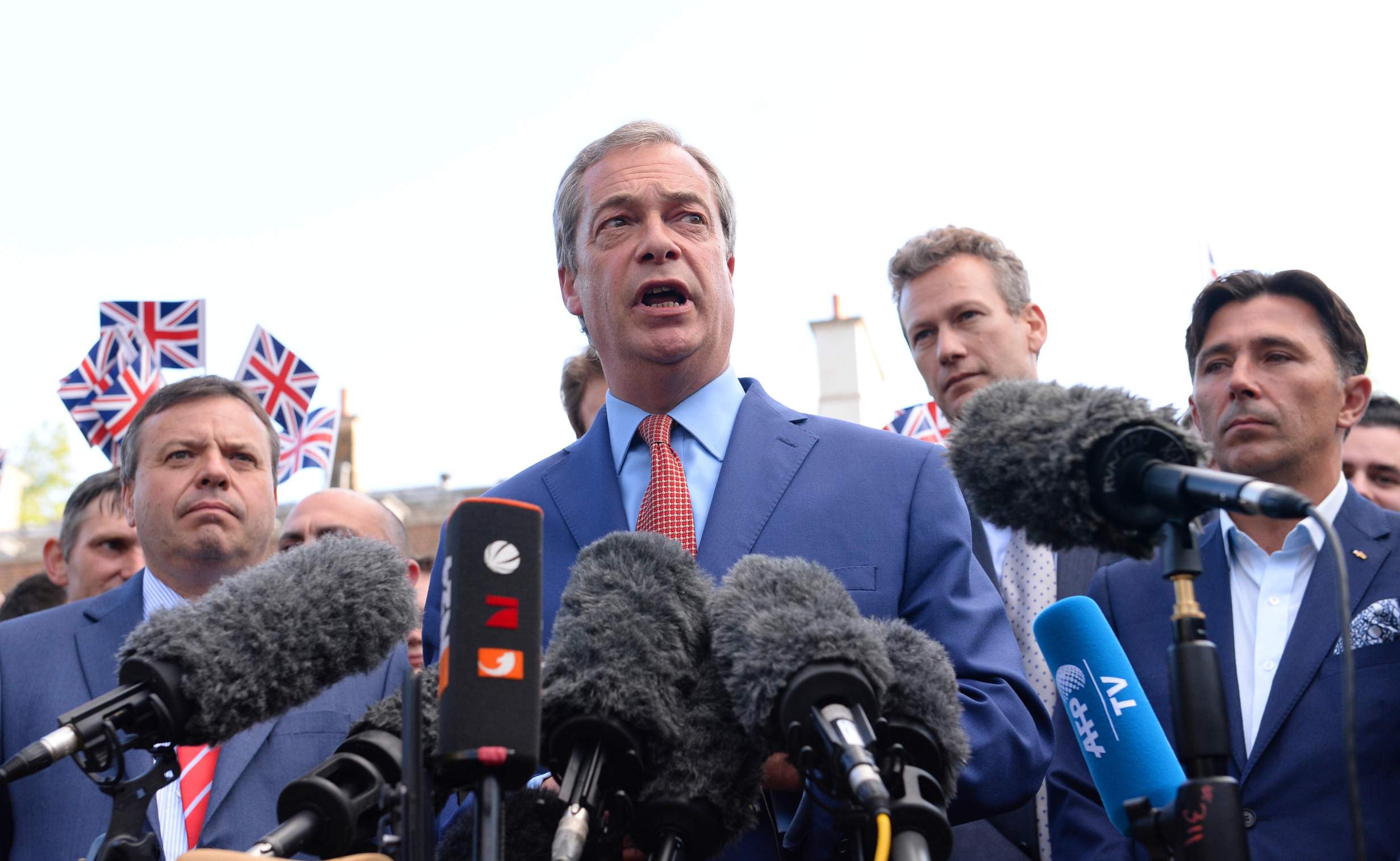
Read our Monthly Magazine
And support our mission to provide fearless stories about and outside the media system
Nathan Gill, the former leader of Reform UK in Wales, and a trusted lieutenant of Nigel Farage,was sentenced to ten and a half years in prison on Friday, for the crime of taking bribes from Oleg Voloshyn, a pro-Russian Ukrainian politician, in order to repeat pro-Kremlin talking points in the European Parliament.
The case sheds a light on the extent the self-proclaimed “patriots” of the British far-right were prepared to go to help Ukrainian politicians who plotted to be installed as Moscow’s new puppet government in Kiev.
While it was SO15, the Metropolitan Police’s Counterterrorism Command, which glued together the evidence that was needed to secure successful prosecution, the actual credit should go to the FBI. It was the Americans, who actually extracted the evidence: WhatsApp messages from Voloshyn’s phone, in which he discussed secretly paying Gill. That was in July 2021, when President Biden was in the White House and the Kremlin was preparing to invade Ukraine.
That timing is at the centre of the relationship of Voloshyn and Gill, in the context of Moscow’s strategy between 2018 and 2020, when the offences took place.
Emboldened by the UK voting to leave (and thus weaken) both the EU and our country, the objective the Kremlin has been pursuing for years, with Europe now preoccupied with its uncertain future and Britain set to face serious economic problems for a very long time, Putin had set his sights on Kiev.
The Kremlin was mobilising its military forces within its borders and taking to task its allies outside them to distract and divide European response for when the attack came.
Long Before the Onset of War
“Mobilisation and concentration of forces happen ‘unnoticed… long before’ the onset of war,” wrote Soviet military theorist Georgii Isserson in the 1940s, a line later cited approvingly by Russian Chief of the General Staff and Deputy Minister of Defence Valery Gerasimov in his infamous 2013 article on modern warfare, showing how preparation for war is conducted through deception.
In Russia itself, the military completed the forward deployment of major formations along Ukraine’s borders, including the 20th Guards Combined Arms Army in Voronezh and the 8th Guards Combined Arms Army near Rostov-on-Don, both placed in permanent positions facing Ukrainian territory.
From May 2018 onward, following the opening of the Kerch Bridge between Russia and the illegally annexed Crimean Peninsula, Russian forces intensified inspections and delays of vessels bound for Mariupol and Berdyansk and progressively restricted Ukrainian access to the Sea of Azov.
In April 2019, the Kremlin introduced a simplified procedure for granting Russian citizenship to residents of the occupied parts of Donetsk and Luhansk, and by mid-2020 more than 100,000 residents had received Russian passports.
In 2020, Ukrainian intelligence publicly assessed that Russia might attempt an operation to seize the North-Crimean Canal, while UN General Assembly resolution 75/29 the same year recorded the continued militarisation of Crimea and repeated closures of Black Sea and Azov Sea areas by Russian forces.
ENJOYING THIS ARTICLE? HELP US TO PRODUCE MORE
Receive the monthly Byline Times newspaper and help to support fearless, independent journalism that breaks stories, shapes the agenda and holds power to account.
We’re not funded by a billionaire oligarch or an offshore hedge-fund. We rely on our readers to fund our journalism. If you like what we do, please subscribe.
Putin’s ‘Ukrainian Businessmen‘
Oleg Voloshyn was one of these. Later sanctioned by the US Treasury as a Russian intelligence proxy, he was employed to advance narratives that would have been seen to benefit Russia in relation to events in Ukraine. His remarks helped Russia to delegitimise Ukrainian institutions, allege endemic corruption, and portray Ukraine as a destabilising influence for Europe. Apart from making various comments in accordance with Kremlin’s talking points, prosecutors stated that at least one of Gill’s speeches in Brussels was sent to him by Voloshyn.
In 2019, Oleg Anatoliyovych Voloshyn was elected member of the Ukrainian parliament from the “For Life” Party (OPFL). Subsequently, he also sat as its representative on the Council of Europe Assembly for three years from 2020.
The “For Life” Party was founded and paid for by Viktor Medvedchuk, a very significant Russian proxi in Ukrainian politics, and a close friend of Vladimir Putin. Sanctioned in 2014 by the US for his role in fuelling conflict and undermining Ukraine’s sovereignty, Medvedchuk had operated for several years in a sort of semi-informal capacity. He was running the “Ukrainian Choice” movement, acting as a backchannel within the Minsk Agreement framework and playing a role in the pro-Russian political milieu.
But in 2018, the year his associate Voloshyn involved Gill, all that changed. Medvedchuk suddenly became a major political player in Ukraine. Taras Kozak, his associate was also named alongside him in the sanctions documents by the US Treasury, bought three Ukrainian television channels (112, NewsOne and ZIK).
Analysts at the Atlantic Council, OCCRP and others described this “expanding media empire” as a major new vector of Russian influence in Ukraine’s information environment, considerably more significant than anything associated with Medvedchuk before 2018.
Then in 2019, he emerged as a leader of the newly formed “For Life” Party, which took 44 parliamentary seats. By 2020 this mix of his newly created media and parliamentary channels of discourse were pumping out Kremlin narratives around the clock.
These were the people Gill was effectively contracting for.
It is not the first time “Ukrainian” businessmen were linked to the Kremlin anti-Western strategy, even long after the pro-Russian government of Yanukovich was brought down as the result of the Orange Revolution in 2005.
The sanctioned oligarch Dmytro Firtash, for example, through his political activities in the UK, funded trips for Conservative MPs to meet pro-Russian politicians in Ukraine.
The Nathan Gill affair, a tiny blip on the radar, pales in comparison with the vast covert Russian interference and disinformation operations that have long been reshaping Europe’s political landscape.
However, their extent across the Continent is becoming clearer through various investigations which have already been conducted by European governments and parliaments in recent years. In the UK, it will remain largely hidden until we continue to be denied a proper public enquiry into the role of Russia around Brexit.

